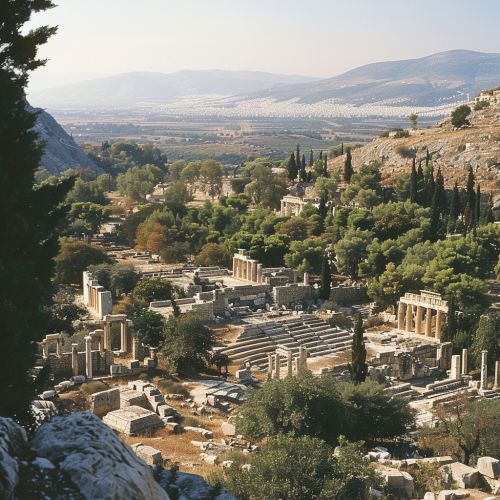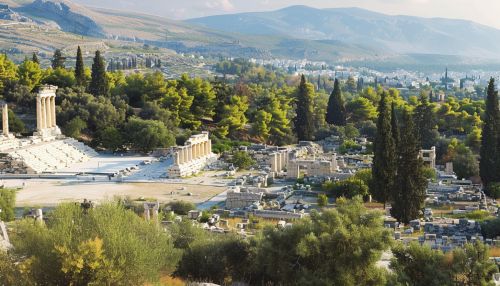Ancient Greek
Origins and Development
Ancient Greek civilization, as the term is commonly understood, refers to the period of Greek history lasting from the emergence of the city-states (polis) around 800 BC to the conquest of Greece by the Roman Empire in 146 BC. This period saw the development of a distinctive Greek culture and the spread of Greek influence across the Mediterranean and beyond.
The origins of Greek civilization can be traced back to the Mycenaean and Minoan cultures of the Bronze Age. The Mycenaeans, who were influenced by the earlier Minoan civilization of Crete, developed a complex society with a strong military and a rich tradition of oral poetry. The Minoans, on the other hand, were known for their elaborate palaces and their sophisticated art and architecture.


The collapse of the Mycenaean civilization around 1100 BC marked the beginning of the so-called Greek Dark Ages, a period of decline and isolation that lasted until the 8th century BC. During this time, many of the achievements of the Mycenaeans were lost, and Greek society became less centralized and more rural.
The end of the Dark Ages saw the emergence of the city-state, or polis, as the dominant form of political organization in Greece. Each polis was an independent entity with its own government and laws, but all shared a common culture and language. The two most important city-states were Athens and Sparta, which were often at odds with each other.
Society and Culture
Greek society was divided into several classes, including citizens, metics (foreigners living in a city-state), and slaves. Citizenship was usually hereditary and conferred a number of rights and privileges, including the right to participate in the political life of the city-state.
The culture of ancient Greece was characterized by its emphasis on education and the arts. The Greeks believed in the value of a well-rounded education, which included not only academic subjects but also physical training and music. This belief is reflected in the concept of arete, or excellence, which was a central value in Greek society.
The Greeks made significant contributions to a number of fields, including philosophy, science, and the arts. They developed the first democratic form of government, made important advances in mathematics and astronomy, and produced some of the world's greatest literature and art.
Philosophy and Science
Ancient Greece is often called the birthplace of Western philosophy. The first known Greek philosophers, known as the Pre-Socratics, sought to explain the world in terms of natural phenomena rather than myth and religion. This marked a significant break from earlier ways of thinking and laid the groundwork for the development of scientific thought.
Among the most influential of these early philosophers were Thales, who is often considered the first philosopher, and Pythagoras, who is best known for the theorem that bears his name. Other important Pre-Socratic philosophers include Heraclitus, known for his doctrine of change, and Democritus, who proposed an early version of atomic theory.
The most famous of all Greek philosophers, however, are Socrates, Plato, and Aristotle. Socrates, who is known primarily through the writings of his student Plato, is famous for his method of questioning, which is still used in teaching and discussion today. Plato, in addition to his dialogues, founded the Academy, the first institution of higher learning in the Western world. Aristotle, a student of Plato, wrote on a wide range of topics, from physics and biology to ethics and politics, and his works have had a profound influence on Western thought.
Art and Architecture
The art and architecture of ancient Greece have had a lasting impact on Western culture. Greek art is characterized by its emphasis on humanism, realism, and idealism. The human figure, in particular, is a common subject in Greek art, and Greek artists were the first to develop the techniques of representing the human body in a lifelike manner.
Greek architecture is known for its use of proportion and symmetry, and for the development of the three classical orders: the Doric, the Ionic, and the Corinthian. The most famous example of Greek architecture is the Parthenon in Athens, a Doric temple dedicated to the goddess Athena.
Conclusion
The civilization of ancient Greece was one of the most influential in the history of the world. Its contributions to philosophy, science, and the arts continue to be studied and admired to this day. Despite its eventual conquest by Rome, the spirit of Greek civilization lived on in the Roman Empire and continues to shape Western culture.
